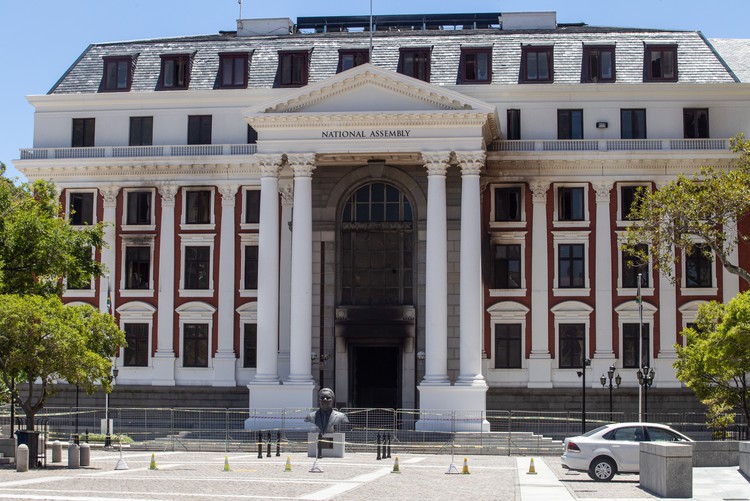Civil society criticises Gender Commission box-ticking exercise
Organisations say the period for public comment on selection of commissioners is inadequate
The Portfolio Committee on Women, Youth and Persons with Disabilities has shortlisted 24 candidates to serve in the Commission for Gender Equality as Commissioners. Archive photo: Ashraf Hendricks
- The Portfolio Committee on Women, Youth and Persons with Disabilities has shortlisted 24 candidates to serve on the Commission for Gender Equality as commissioners.
- The public has ten days to comment on the shortlisted candidates.
- Civil society groups say they need at least 30 days for fact-finding and deliberation.
More than 40 organisations have come out against the “inadequate” public participation process for selecting new commissioners for the Commission for Gender Equality (CGE).
The organisations say the public is being denied the opportunity to meaningfully consider the suitability of the shortlisted candidates.
On 27 June, the Portfolio Committee on Women, Youth and Persons with Disabilities invited the public to apply for and nominate suitable candidates to serve on the CGE as commissioners. Applications closed on 18 July. The Committee met on 23 and 24 August to assess and shortlist candidates.
Last Friday, the chairperson of the portfolio committee Nonhlanhla Ncube-Ndaba announced the 24 shortlisted candidates and invited the public to comment.
She said the closing date for comment is 16 September.
In a joint letter addressed to the chair, the Speaker of the National Assembly, and the Office on Institutions Supporting Democracy, civil society groups said the ten-day timeframe for public comment “falls short of an appropriate and meaningful public participation process”.
“This time allocation is entirely inadequate for fact-finding, discussion, and consideration by civil society, and sends the very unfortunate message that the appointment of CGE commissioners does not warrant careful consideration or proper background research,” the organisations said.
“Organisations will not be able to canvas their constituents and build consensus in such a short time, which will impact very negatively on the awareness and participation of many marginalised groups.”
The groups raised concern about the “heavy emphasis” on the qualifications of the candidates, as this might disadvantage community candidates who may have an extensive history of commitment to gender equality but with few or no formal qualifications.
“The spreadsheet provided also makes it impossible to assess whether the shortlisted candidates have such a record, as there is no description of their work or activism in this context, or even their own motivation for applying,” the organisations said.
The spreadsheet also does not include the shortlisted candidates’ resumes, despite the committee undertaking to make these resumes public in the initial call for applications on 27 June.
The groups also expressed concern about the 2,000 character limit on the form used to comment on individual candidates, calling it an “arbitrary limitation” that is likely to prove inadequate for the public to make well-reasoned arguments for or against any candidate.
“In the current South African context, gender-based violence wreaks unabated destruction; women continue to bear the brunt of inequality, poverty, and unemployment; and hate crime, hate speech, and discrimination against LGBTIQ+ communities goes unchecked, often with deadly consequences,” the letter said.
“It cannot be disputed that the mandate of the CGE and the experience, expertise, and temperament of its commissioners is ever more important.”
The organisations are demanding that the committee extend the timeframe for public comments to at least 30 days, publicise the resumes of shortlisted candidates, and remove the word limit on public submissions.
We are awaiting comment from the Committee on Women, Youth, and Persons with Disabilities, Speaker of the National Assembly and the Office on Institutions Supporting Democracy.
Support independent journalism
Donate using Payfast

Don't miss out on the latest news
We respect your privacy, and promise we won't spam you.
Next: I earned more as a farmworker in South Africa than as a maths teacher in Zimbabwe
Previous: New fishing quotas to be allocated
© 2022 GroundUp. This article is licensed under a Creative Commons Attribution-NoDerivatives 4.0 International License.
You may republish this article, so long as you credit the authors and GroundUp, and do not change the text. Please include a link back to the original article.
We put an invisible pixel in the article so that we can count traffic to republishers. All analytics tools are solely on our servers. We do not give our logs to any third party. Logs are deleted after two weeks. We do not use any IP address identifying information except to count regional traffic. We are solely interested in counting hits, not tracking users. If you republish, please do not delete the invisible pixel.

